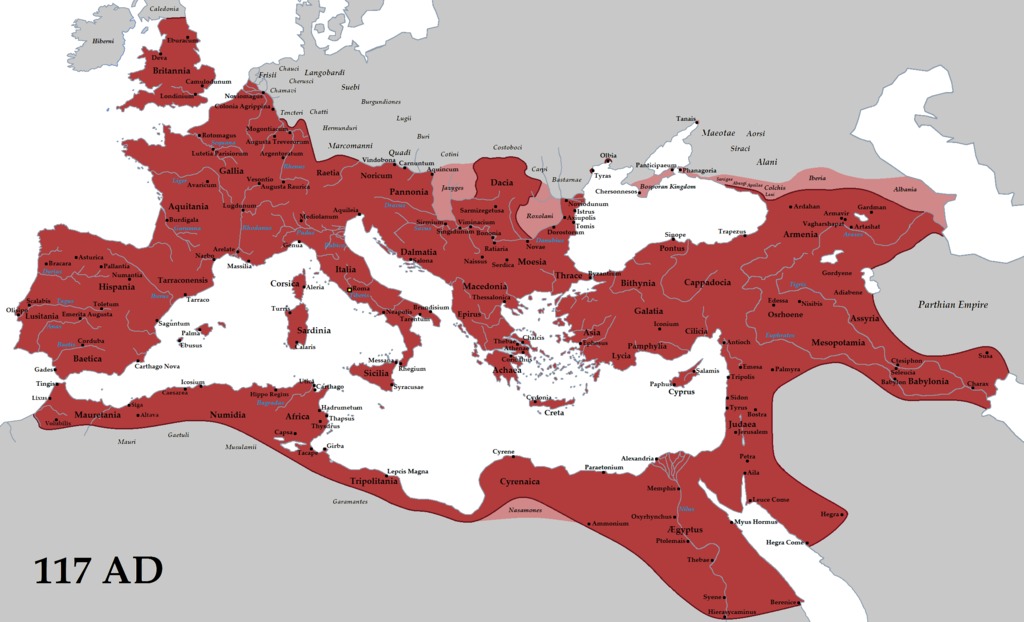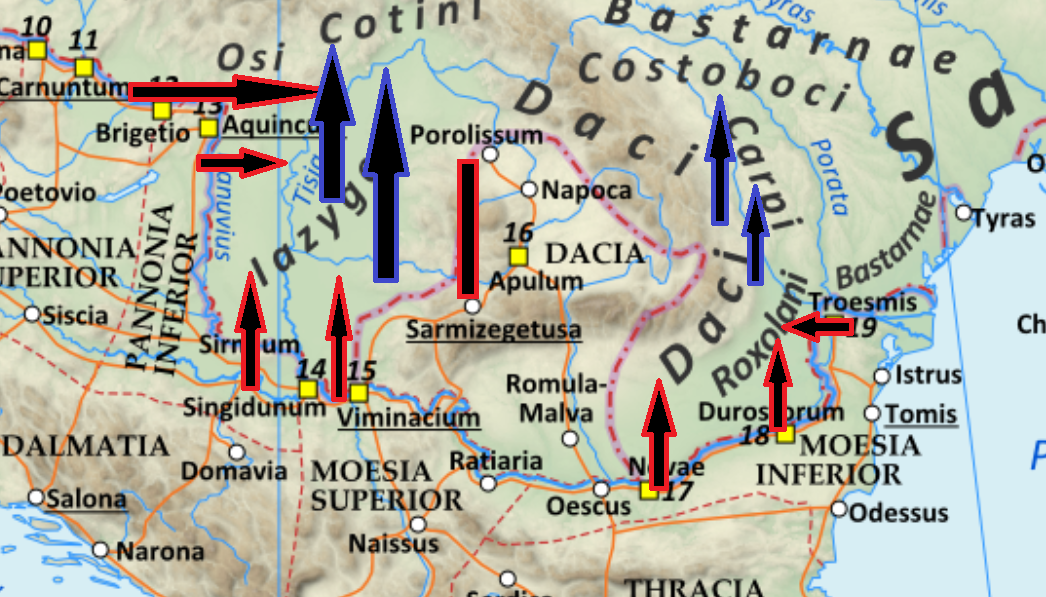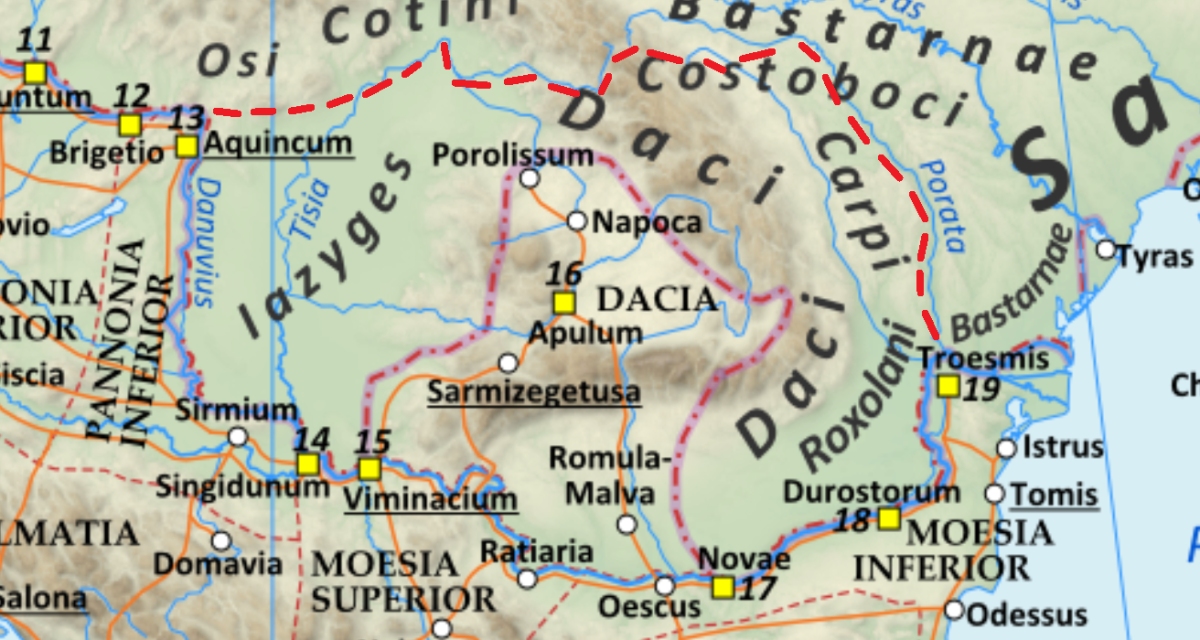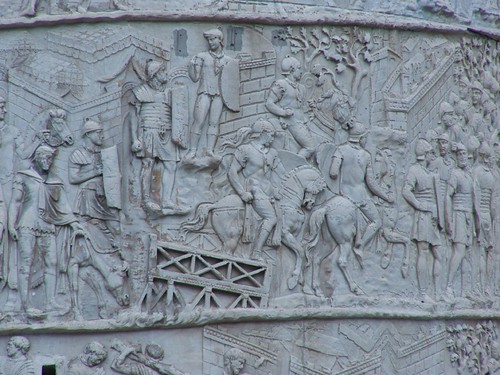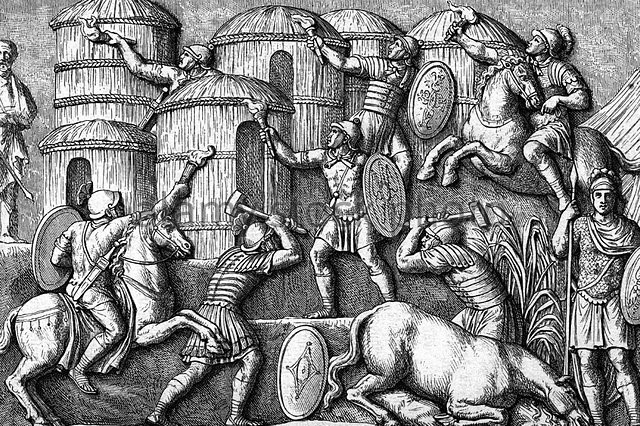@Xenophonte : thanks

I'll do my best not to disappoint this time
@SlyDessertFox : I could not let you have the only currently updated nice ancient timeline, could I ?

More seriously I've reread everything I wrote at the time, but as a non native english speaker I'm sure there is still a lot of things to improve...
@Kurt_Steiner : not very Roman, but I appreciate the feeling

And now, another chapter :
Oescus, Danubian border, autumn 117 CE
The praetorium is a huge wooden building first constructed to hosts the headquarter of Hadrian’s predecessor, Trajanus, during his second dacian war. All around it the bustle of the camp made for a lot of noise, but not in the building, its double walls insulating those inside from any outside interference. Here Publius Aelius Hadrianus had been a general amongst many, but he is now the absolute ruler of the Empire. He sits enthroned in all the imperial glory, the commanders of the Danubian armies seated around him. Many roads lay in front of him, and only he will make the decision on which one to take.
In front of the assembled generals, a large map of the empire stands up, small flags and colours showing the extent of the empire and its various forces with an estimation of their respective strengths. A huge concentration of force was still present in the east, leaving the Rhine dangerously under protected. In some places the borders were on river lines, as on the Rhine, but much too often they were not. Dacia was exposed to the Roxolani and to the Iazyges, even if they pretended to submit to the Emperor’s will, and there was a huge gap between the Rhine and Danube garrisons where barbarian pressure could splinter the imperial defenses.
He has already taken decisions to somewhat allege the challenge facing the Empire by abandoning most of the Eastern conquests of his predecessor, but it is not enough. He must find a way to shorten the frontiers, to concentrate the forces he has instead of forever moving them around to reinforce the units at the next crisis point. Because despite all the roman might their is always a crisis point, only the Gods’ benevolence preventing the Empire from facing multiple large ones at the same time. What if the Parthians attacked at a time when there was a huge barbarian push in the Danube or Rhine region, or a major rebellion in Britannia ? He needs to find a more permanent solution to his dilemma.
Rising from his throne, Hadrianus feels all eyes looking at him. Walking slowly, he approaches the huge map, his purple mantle falling on his shoulders being the only noise to be heard. For the next hour he will them the future. Two large scale offensives, both in the Danubian area, using forces freed by the end of the campaign in the east. Four enemies they knew well, two of them who had been diminished by the recent wars of Trajanus.
The Roxolani and the Daci would be attacked from across the Danube , from the east, and pushed toward the north and the tribe of the Carpi, where they would be all pushed to the other side of the river Porata. The Legio I Italica and XI Claudia would spearhead the attack with some detachments from the XV Apollinaris and the XII Fulminata brought from Cappadocia. The legio V Macedonica would serve as anchor for this movement while the XIII Gemina would protect the eastern side of the lands taken by Trajanus.
At the same time, on the other side of Dacia, XIV Gemina from Carnuntum, the II Adiutrix from Aquincum and the IV Flavia Felix would attack across the Danube from the west and the south, the VII Claudia protecting Dacia on the western side, the forces crushing the Iazyges to push them toward the mountains held by the Osi and the Cotini. The Quadi and the Marcomanni had been quiet enough those last few years to so diminish the forces protecting Noricum and Pannonia. It was a gambit, but a reasonable enough one.
Hadrianus himself would lead the Iazyge offensive, knowing the land well from a previous mission in the area. Those two operations would significantly diminish the total length of the border, with mountains and rivers to shore up the future defenses. Two or three years of campaigning would probably see the border put on the Porata or even the Tyras, giving numerous lines of defense against future raids from the steppe peoples.
His generals agreed. It was a sound plan, and would bring good agricultural land in the hands of the Empire, lands which would provide them with nice new estates as well as places where to settle many veterans. And in three or four years they would be able to turn their sight back toward the east and Parthia with seasoned soldiers at their back, where further riches would be plundered. Yes, they liked the plan they were seeing.
Red : the main axes of advance of the Imperial forces
Blue : the expected retreat of the barbarians
The expected new borders at the end of the operations
